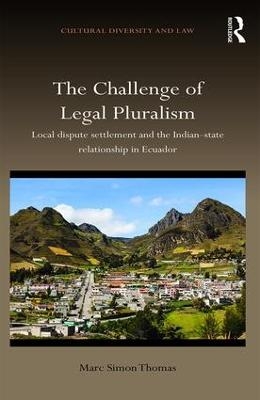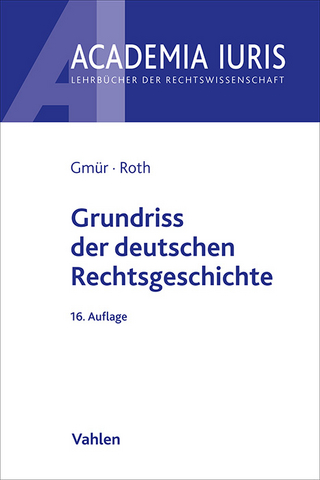
The Challenge of Legal Pluralism
Local dispute settlement and the Indian-state relationship in Ecuador
Seiten
2016
Routledge (Verlag)
978-1-4724-8057-6 (ISBN)
Routledge (Verlag)
978-1-4724-8057-6 (ISBN)
Within the Latin American context, legal pluralism is often depicted as a dichotomy between customary law and national law. In addition, the use of customary law alongside national law is frequently portrayed as a vehicle of resistance.
This book argues that, because ordinary Indians are not positively biased in favor of customary law per se, a heterogeneity of legal practices can be observed on a daily basis, which consequently undermines the commonly held view of customary law as a "counter-hegemonic strategy", even if, on other socio-geographical levels, this thinking in terms of resistance holds true. Based on qualitative research, the work analyzes how internal conflicts among indigenous inhabitants of the Ecuadorian highlands are being settled in a situation of formal legal pluralism, and what can be learned from this in terms of Indian-state relationships. It is shown that, on a local level, the phenomenological dimension of legal pluralism can be termed "interlegality." On a macro level, ontological assumptions underscore that legal pluralism is still seen as a dichotomy between customary and national law.
Multidisciplinary in nature, the book will be of interest to academics and researchers working in the areas of Legal Pluralism, Cultural Anthropology and Latin American Studies.
This book argues that, because ordinary Indians are not positively biased in favor of customary law per se, a heterogeneity of legal practices can be observed on a daily basis, which consequently undermines the commonly held view of customary law as a "counter-hegemonic strategy", even if, on other socio-geographical levels, this thinking in terms of resistance holds true. Based on qualitative research, the work analyzes how internal conflicts among indigenous inhabitants of the Ecuadorian highlands are being settled in a situation of formal legal pluralism, and what can be learned from this in terms of Indian-state relationships. It is shown that, on a local level, the phenomenological dimension of legal pluralism can be termed "interlegality." On a macro level, ontological assumptions underscore that legal pluralism is still seen as a dichotomy between customary and national law.
Multidisciplinary in nature, the book will be of interest to academics and researchers working in the areas of Legal Pluralism, Cultural Anthropology and Latin American Studies.
Marc Simon Thomas is a researcher in the Montaigne Centre for Judicial Administration and Conflict Resolution, Utrecht University, the Netherlands. His research and publications are focused on dispute settlement, legal anthropology and legal pluralism.
An Introductory Overview
Legal Pluralism, Multiculturalism, and the State
Legal Pluralism in Ecuador
The Parish of Zumbahua: Cohesion and Conflict
Conflicts, Authorities and Procedures
Interlegality at the Teniente Político’s Office
Trouble in Tigua
The La Cocha-Guantópolo Murder Case
Conclusion
| Erscheinungsdatum | 25.05.2016 |
|---|---|
| Reihe/Serie | Cultural Diversity and Law |
| Verlagsort | London |
| Sprache | englisch |
| Maße | 156 x 234 mm |
| Gewicht | 476 g |
| Themenwelt | Recht / Steuern ► Allgemeines / Lexika |
| Recht / Steuern ► EU / Internationales Recht | |
| Sozialwissenschaften ► Soziologie | |
| ISBN-10 | 1-4724-8057-0 / 1472480570 |
| ISBN-13 | 978-1-4724-8057-6 / 9781472480576 |
| Zustand | Neuware |
| Haben Sie eine Frage zum Produkt? |
Mehr entdecken
aus dem Bereich
aus dem Bereich
Sammlung des Zivil-, Straf- und Verfahrensrechts, Rechtsstand: 14. …
Buch | Hardcover (2024)
C.H.Beck (Verlag)
49,00 €


